Course Information
The content in each of the five courses that make up this program systematically reflects in-depth research and best-practice learning focused on the key topics schools are facing today.
Each course is broken down into lessons that contain the following:
Academic readings including a breakdown and key takeaways
Video content from subject matter experts in the field
Activities to promote self-reflection
Submitted assignments to ensure learning outcomes
Curriculum
When enrolling in the Johns Hopkins Safe and Healthy Schools Certification Program,
each learner will be required to complete the following courses:
This course is meant to help you reflect upon your interest in understanding and supporting a comprehensive safe schools strategy and to identify best practices in this regard.
Beginning with an overview and definition of a safe school, we discuss the rationale for understanding the importance of safe and healthy schools, the Johns Hopkins School of Education SCHOOLWELL model for school resilience, early learning practices that support safe schools and the importance of strong family engagement.
School safety begins with a safe and healthy school. This course will focus on the complex and dynamic relationship between safe and healthy schools and mental health supports for both students and school-based personnel.
As the national conversation around school safety continues to grow, we must address the growing needs to support students in various situations that can potentially undermine their academic success. In addition, schools face a growing role in terms of identifying and remediating mental health stressors affecting the performance of classroom teachers and other essential school personnel.
Every child deserves to be safe in school. This course will explicate the importance of research-based school interventions that support Safe and Healthy Schools.
From improving outcomes for students with disabilities to using restorative practices to reduce student conflict to understanding trauma-informed practices and social-emotional learning as an achievement strategy, this course will make the case that schools must first be emotionally safe and nurturing environments in order to understand the physical dimension of campus safety.
This course seeks to establish a broader understanding of the nuanced relationship between school culture, climate and discipline. Participants will consider the disproportionality in school discipline outcomes for marginalized and underrepresented populations in the United States.
In addition, the sometimes-controversial role of the school resource officer will be examined.
With $3 billion in annual spending on school safety across the country, school administrators are frequently compelled to make high-stakes purchasing choices with marginal information.
This course will unpack advances in school safety technology, best practices in choosing technology to support safe and healthy schools, and safety training for students. It will also consider the overall impact of gun violence in schools as a mandate for change.
Take the first step to getting Safe and Healthy Schools certified today!
Johns Hopkins Center for Safe and Healthy Schools
In keeping with the mission of Johns Hopkins University to “bring the benefits of discovery to the world,” the School of Education equips educators and communities—locally and globally—with the latest insight into how learning happens.
The Johns Hopkins School of Education explores the frontiers of knowledge to understand how individual, communal, behavioral, and neurological aspects of human development interact to impact learning. Researchers are passionate about sharing their findings: with educators, with leaders, with communities, with students. With you.
From individual students to the schools they learn in, from communities to states, quality education is imperative. Nothing less than our future is at stake.
Klassroom
Klassroom is a mission-driven education company committed to connecting students with life-changing teachers and helping those teachers live their dreams.
Through state-approved teacher certification, innovative teacher recruitment solutions, online professional development and access to 1.2 million teachers, Klassroom offers real opportunity to address the national teacher shortage.
Klassroom is connecting great schools with great educators and empowering life-changing career opportunities. Because we believe there’s one critical factor to student success that will never change: the power of a great teacher.
How JHU and Klassroom work together
Created by the Johns Hopkins Center for Safe and Healthy Schools (CSHS) and powered by Klassroom, this program is the result of a joint commitment to establishing safe and healthy learning environments.
As a part of the core focus of CSHS, this program aims to address a definitive 21st-century issue facing education across the nation: ensuring students experience a safe school environment.
Working together with Klassroom, a mission-driven education company committed to connecting students with life-changing teachers, and helping those teachers live their teaching dreams, CSHS is thrilled to bring this program to schools across the country.
Course Contributors


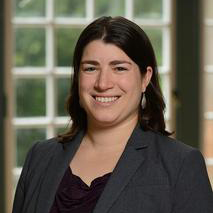


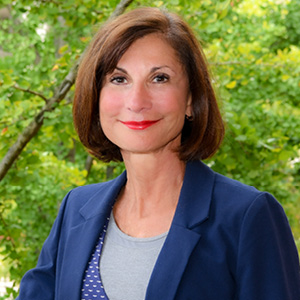

Alissa J Harrington
Alissa Harrington draws from more than 20 years of industry experience as an instructional designer and technology trainer. In addition to her role as the instructional designer for Center for Safe and Healthy Schools, she is also the Senior Instructional Designer for McDaniel College.
A former elementary school teacher, Harrington holds a degree in elementary education from Towson University, and has obtained several certifications including Certified Internet Webmaster (CIW), Quality Matters (QM) Peer Reviewer, and SMART Notebook Certification. As an advocate for active learning classrooms and Universal Design for Learning, Alissa currently serves as the Education Liaison for the Committee on Architecture for Education (CAE), an American Institute of Architects (AIA) Knowledge Community.

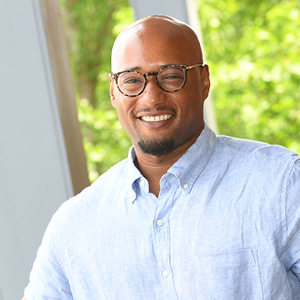

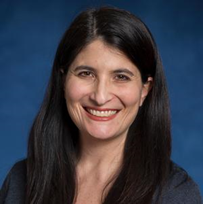
Tamara Marder, PhD, BCBA-D
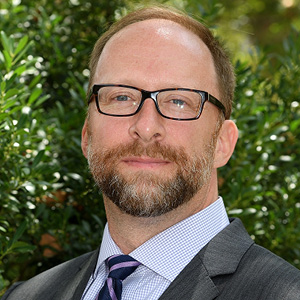

Donna Schnupp
Donna Schnupp has been the instructional design manager at the Johns Hopkins School of Education for nearly 20 years. She currently manages the school’s instructional design team and is the lead instructional designer for its innovative Doctor of Education, collaborating with faculty to design and deliver a fully online EdD program that reaches students around the globe.
Schnupp has also taught online courses for the Digital Age Learning and Educational Technology and Online Teaching and Learning for Adults programs while being an integral part of the development of the continuing education units initiative for the Center for Safe and Healthy Schools. She also serves as the School of Education’s Johns Hopkins Universal Design for Learning ambassador.
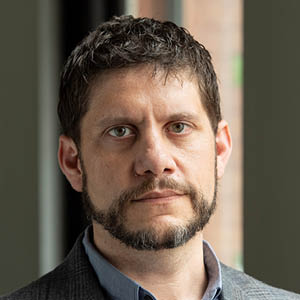
Marc Stein is an associate professor in the Johns Hopkins School of Education and the research co-director of the Baltimore Education Research Consortium. He also is a faculty associate with the Johns Hopkins Population Center and a faculty affiliate with the Center for Social Organization of Schools.
His research focuses on quantitative and mixed methods analyses of the social contexts surrounding schools and schooling, and the role that these contexts play in the enactment of educational policy. He is especially interested in how educational policy can exacerbate or ameliorate racial-ethnic, socioeconomic, and other inequalities.
Get Started
Take the first step to getting Safe and Healthy Schools certified today!